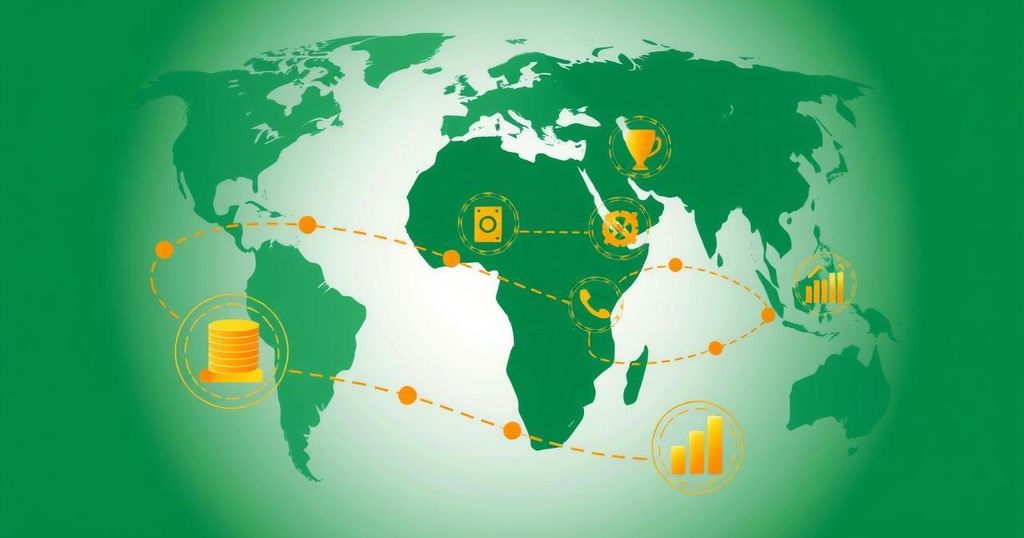Nigeria’s BRICS Membership: Implications and Opportunities

Nigeria’s recent admission as a BRICS partner country presents opportunities in finance, trade, and global governance. Despite these advantages, Nigeria must address internal challenges and balance international relationships to fully leverage its BRICS membership benefits.
Recently, there has been considerable discussion surrounding BRICS and its expansion, particularly concerning Nigeria’s inclusion. Although many perceive this as a new trend, it is important to acknowledge that BRICS has been influential since 2001, following a research paper by Jim O’Neill, which suggested that the growth of the founding BRIC nations would challenge the G7 economies due to their favorable conditions.
BRICS originated as an investment term but has evolved into a coalition of non-Western economies, beginning with Brazil, Russia, India, and China in 2006, joined by South Africa in 2010. In January 2024, additional members, including Egypt and Saudi Arabia, were invited, with Nigeria becoming a partner on January 17, 2025. The BRICS coalition now has three categories: full members, partner countries, and observer states.
The recent expansion of BRICS has substantial geopolitical implications, representing over a quarter of the global economy and nearly half the world’s population. This prominence contributes to BRICS’s increasing significance within the global landscape, emphasizing its role in addressing current economic challenges on the world stage.
BRICS operates through annual summits, where Heads of State convene and rotate the presidency. Their decision-making process is consensus-based, and while lacking a formal charter, BRICS has established a certain institutional character through political interactions and the creation of institutions like the New Development Bank (NDB).
The bloc prioritizes several key themes, such as enhancing representation in global organizations, coordinating economic policies, creating alternative financial systems, and pursuing de-dollarisation. The creation of the NDB and the Contingent Reserve Arrangement (CRA) aims to provide financing alternatives to the World Bank and IMF, while discussions about de-dollarisation focus on reducing reliance on the US dollar in trade and finance.
Nigeria’s partnership with BRICS offers multiple advantages, including access to financing from the NDB, which could alleviate its budget deficits and promote investment in various sectors. Additionally, Nigeria could leverage BRICS membership to enhance its global governance efforts as part of a larger coalition, giving a stronger voice to its interests
The partnership may also open up trade opportunities, as Nigeria has mutual trading interests with BRICS nations. However, Nigeria’s internal challenges, including fluctuating trade policies and infrastructure issues, pose potential barriers to realizing these benefits.
To capitalize on the opportunities presented by BRICS membership, Nigeria must implement necessary policy reforms and improvements in governance. Moreover, balancing relationships with existing partners, such as the United States and European nations, will be crucial to ensuring Nigeria can navigate its new affiliations effectively.
In conclusion, Nigeria’s admission as a partner in BRICS signifies a potential pathway to economic growth and development. However, to fully harness the benefits of this partnership, the Nigerian government should adopt a strategic approach to enhance its internal capacity and maintain strong diplomatic relations.
In summary, Nigeria’s inclusion in BRICS as a partner presents opportunities for economic growth and improved global governance. However, addressing internal challenges and maintaining balanced relationships with existing allies is essential for Nigeria to realize the full potential of this partnership. Successful navigation of this landscape requires careful strategy and commitment to reform.
Original Source: businessday.ng








